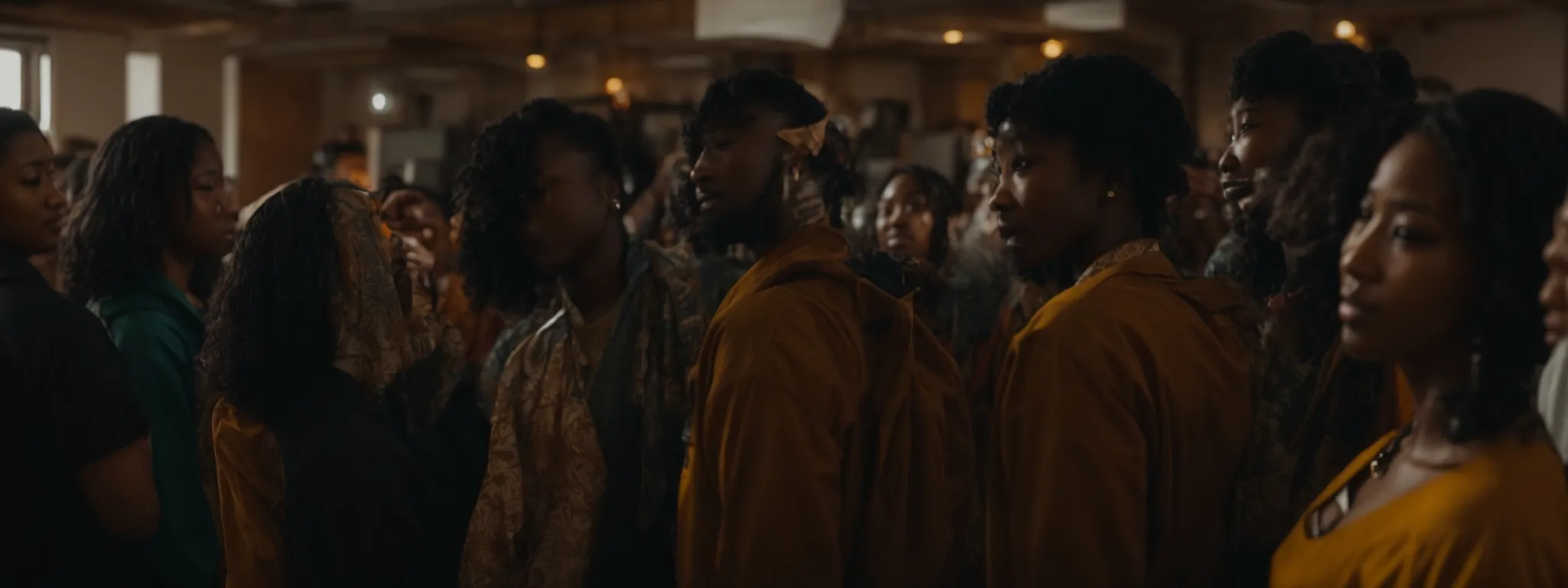Examples of Referral Programs
Innovative Referral Program Strategies From Successful Brands In a digital marketplace where competition is fierce and consumers are inundated with choices, innovative referral programs have emerged as […]
Innovative Referral Program Strategies From Successful Brands
In a digital marketplace where competition is fierce and consumers are inundated with choices, innovative referral programs have emerged as a key differentiator for brands aiming to enhance customer loyalty and fuel growth.
Successful companies are not just asking for referrals; they are crafting strategic campaigns that reward, engage, and align with the values of their customers, turning them into vocal advocates for the brand.
From leveraging custom rewards that resonate with an audience’s unique preferences to employing gamification techniques that inject fun into the referral process, these brands are taking referral marketing to new heights.
Keep reading to uncover how top-performing brands are redefining the art of the referral program with inventive strategies that you can emulate.
Key Takeaways
- Engaging Rewards in Referral Programs Foster Brand Loyalty and Amplify Customer Advocacy
- Experiential Rewards and Gamification Are Effective Strategies in Modern Referral Marketing
- Strategic Partnerships in Referral Programs Can Expand Brand Reach and Enrich Customer Experience
- Personalization and Community Involvement Are Crucial for the Success of Referral Initiatives
- Charitable Contributions Within Referral Programs Resonate With Customer Values and Enhance Brand Reputation
Leveraging Custom Rewards in Brand Referral Programs

In today’s digitally-dominated marketplace, brands have recognized the power that lies in the voices of their customers.
A standout element in today’s referral marketing strategies is the adoption of tailored rewards capable of turning regular customers into fervent promoters.
This innovative approach transforms the traditional ‘one-size-fits-all’ reward system into a dynamic tool, heightening engagement and driving conversions.
As businesses explore unique reward systems that drive referrals, they are actively examining successful brands that have pioneered custom reward strategies, while analyzing the impact these personalized incentives have on expanding their customer base.
By diving into the nuances of these methodologies, brands can identify what resonates with their clients and further refine their own customer referral programs.
Exploring Unique Reward Systems That Drive Referrals
Modern digital marketing solutions leverage the power of a well-crafted referral program, understood as a cornerstone of amplifying brand reach organically. By offering an array of custom rewards tailored to the customer’s preferences, companies bolster the effectiveness of their referral marketing programs, often seeing a substantial uptick in participation and, consequently, customer acquisition rates.
When companies embrace tools like SearchAtlas SEO software, they delve into deeper insights about their audience, allowing them to design incentive structures that resonate. The utilization of sophisticated analytics paves the way for a rewards system that not only recognizes the value of each referral but also aligns seamlessly with the users’ motivations and behaviors:
- Evaluating customer engagement to forecast potential promoters.
- Segmenting incentives based on customer loyalty and previous interactions.
- Monitoring the efficacy of various rewards to continually refine the referral process.
Examining Successful Brands With Custom Reward Strategies
The Digital Marketing Landscape is teeming with referral program examples that are redefining the norm, setting new benchmarks in customer loyalty and retention. Brands such as Dropbox and Airbnb have emerged as pioneers, illustrating the profound impact custom referral rewards can have on a company’s growth trajectory.
Orienting their marketing strategy around the customer experience, these organizations have meticulously crafted referral rewards that cater to the specific desires and needs of their brand advocates. This strategic focus on personalization not only cultivates a stronger brand connection but also stimulates consistent, organic growth through word-of-mouth promotion.
- Dropbox adopted a tiered referral reward system, significantly increasing their user base and storage space usage.
- Airbnb designed diverse incentive structures that motivated both current users and new sign-ups, boosting their accommodation listings and bookings.
Analyzing the Impact of Personalized Rewards on Referrals
Personalization in referral rewards demonstrably shifts customer dynamics, effectively turning passive receivers into active brand ambassadors. The potency of customizing these incentives lies in their capacity to make each customer feel singularly valued, thereby fostering a more profound brand loyalty and leading to heightened customer referrals, driving the much-coveted organic growth in the digital ecosystem.
Analyzing the outcomes from such strategic adaptations, businesses discern a pattern: personalized rewards directly correlate to an increase in conversion rates. By crafting a referral program that speaks directly to the hearts of their customers, brands notice not just a surge in active participation but an amplification in customer retention and an enriched customer experience that bolsters the overall reputation of their digital marketing solutions.
Gamification Techniques in Referral Marketing

Amidst the evolving landscape of digital marketing, brands are continually seeking dynamic strategies to catapult their referral programs above the industry standard.
Utilizing gamification techniques represents a transformative approach capable of not only capturing but sustaining customer engagement within referral marketing campaigns.
By integrating game-like elements into referral strategies, businesses tap into a fundamental human inclination towards competition and achievement, fostering a robust participatory culture.
This introduction sets the stage to delve into the mechanics of how brands curate engaging game-based experiences within their referral programs, unveils case studies exhibiting the potent fusion of gamification with referral marketing, and discusses metrics for evaluating the triumph of these novel strategies.
How Brands Use Game Mechanics to Boost Referral Engagement
In the highly competitive realm of digital marketing, businesses are now converging on gamification as a potent strategy to amplify the appeal of their referral programs. Incorporating elements such as leaderboards, points systems, and achievement badges, brands have witnessed a formidable surge in both customer engagement and referral success, positioning these incentives as a catalyst within their overall marketing arsenal.
Embracing the interactive quality of game mechanics, companies are transforming the referral experience from a transactional interaction into an immersive journey. Customers, now cast in the role of players, are motivated to spread the word with more fervor, propelled by the desire to unlock the next level of rewards or gain recognition amongst their peers, thus intensifying the effectiveness of the companies’ referral marketing endeavors.
Case Studies of Referral Programs With Gamification Elements
In the realm of digital marketing, the merger of gamification and referral programs has proven to be a recipe for success for several leading brands. Starbucks, with its My Starbucks Rewards, cleverly integrates gamification by inviting customers to collect stars which in turn unlock exclusive benefits and free products.
| Brand | Gamification Technique | Engagement Outcome |
|---|---|---|
| Starbucks | Star Collection & Levels | Increased Customer Loyalty |
| Nike+ | Fitness Challenges & Leaderboards | Heightened Brand Interaction |
Similarly, Nike+ leverages gamified challenges coupled with a social leaderboard to cultivate a vibrant community of athletes who engage in friendly competition while promoting Nike’s product line: this approach effectively bridges the gap between digital engagement and physical product usage.
Measuring the Success of Gamified Referral Strategies
Pinpointing the impact of gamified referral strategies hinges largely on analyzing customer interactions and the resultant referral rates. It’s imperative for brands to carefully monitor metrics such as customer participation levels, frequency of referral code usage, and the expansion of their customer base to gauge the effectiveness of these game-centric approaches.
Moreover, companies tend to assess the longevity and depth of engagement that their gamified referral programs foster. The true measure of success is evident not just in the initial burst of activity but also in the sustained interaction and continued advocacy from their customer champions that can transform a brand into a household name.
Integrating Social Media Into Referral Campaigns

With the sprawling influence of social platforms, integrating social media within referral campaigns has emerged as a vital component for brands keen on optimizing their digital marketing strategies.
It becomes quintessential for brands to craft shareable, engaging content that resonates on social platforms and fuels virality.
This approach boosts brand visibility and encourages an organic proliferation of the brand’s message, leveraging the power of social networks.
By scrutinizing successful brand strategies and honing in on methods to capture and analyze referral conversions from these platforms, companies can measure the ripple effect of their social media-driven referral programs and refine them for maximum impact.
Crafting Shareable Referral Content for Social Platforms
In the digital marketing milieu, successful brands keenly leverage social media channels to amplify their referral campaigns. The key lies in creating shareable content that not only intrigues but also prompts action among social media users.
At the intersection of creativity and strategic placement, brands deploy powerful social media messages that engage their audience, seamlessly encouraging users to share their referral codes with their network: crafting the narrative around customer success stories proves to be an effective tactic.
| Brand | Social Media Strategy | Outcome |
|---|---|---|
| Brand X | Customer Success Stories | Enhanced Shareability and Referral Code Usage |
| Brand Y | Interactive Challenges | Increased Brand Engagement and Network Expansion |
Successful Brand Strategies for Social-Driven Referrals
Embracing the expansive reach of social media, Top-Tier Brands are reimagining referral programs by integrating platforms like Facebook, Twitter, and Instagram into their campaigns. These brands deploy social-driven strategies that inherently encourage sharing, escalating brand awareness and fostering a network of brand ambassadors through user-generated content and social proof.
On platforms where visuals and brief, engaging messages reign supreme, these brands excel by curating content that compels users to participate and share: executing hashtag campaigns that invite a myriad of personal stories, creating shareable graphics that encapsulate the brand journey, and producing referral challenges that ignite excitement across social networks:
- Hashtag campaigns that spark conversation and community involvement.
- Eye-catching graphics that resonate with the brand’s visual story.
- Interactive referral challenges that spread rapidly due to their fun, competitive nature.
Tracking and Analyzing Social Media Referral Conversions
In the realm of referral campaigns, the emphasis on tracking and analyzing conversions from social media is paramount. Brands deploy cutting-edge digital marketing solutions like LinkGraph’s SearchAtlas SEO software, which provides deep insights into how social media activities convert audiences into brand promoters. These tools enable companies to measure the efficacy of each referral initiative, discerning the paths that customers traverse from a social media interaction to a full-fledged conversion.
Underscoring the importance of precise measurement, accurate analysis of social referrals assists brands in optimizing their marketing strategies for better customer engagement. By employing analytics to assess the performance of referral links shared across platforms, businesses gain a granular understanding of user behavior, which in turn informs targeted adjustments to their campaigns, driving more effective customer acquisition and bolstering overall return on investment.
Referral Programs With Tiered Incentive Structures

In the vast expanse of digital marketing, referral programs surge as pivotal mechanisms in amplifying customer loyalty and expanding brand influence.
Successful companies understand that one key to customer engagement is the implementation of tiered incentive structures within their referral programs.
These multi-level systems are ingeniously designed to incentivize not just a single referral but encourage a cascade of introductions, rewarding customers for their multiple endorsements with escalating benefits.
As brands increasingly adopt these graduated reward schemes, they unlock the potential for exponential growth through heightened consumer advocacy.
This introduction unfolds the art of crafting rewarding tiers that stimulate continued participation, explores the narratives of brands that have triumphed using tiered referral incentives, and distills the essence of best practices integral to sculpting an effective tiered referral program framework.
Designing Tiered Rewards to Encourage Multiple Referrals
When successful brands strategize to enhance their referral programs, tiered incentive structures emerge as an effective method for galvanizing existing customers to become repeat referrers. These tiered systems reward customers incrementally, offering more valuable incentives as individuals progress through predetermined referral milestones, effectively multiplying engagement and reinforcing customer loyalty.
Brand strategy experts recommend designing these multi-tiered rewards to be both attainable and aspirational, thereby transforming satisfied customers into devoted brand ambassadors. Such strategies ensure that customers remain motivated over the long term, as each successive tier offers a new challenge and a more significant reward, keeping the referral loop active and flourishing.
Brand Success Stories Using Tiered Referral Incentives
One notable case where a tiered incentive structure made a significant impact was with the software company Evernote. By implementing a multi-level referral program, Evernote significantly boosted its customer engagement, with users progressively earning more storage and premium features as they referred higher numbers of new users to the platform.
- Evernote created graduated rewards, escalating from additional storage to months of premium service, enticing users to climb up the referral tiers.
Another success story is that of the file synchronization service Dropbox. The introduction of a tiered referral system directly influenced the rapid expansion of their customer base. Participants received extra storage space with each successful referral, encouraging persistent advocacy and yielding exponential growth for Dropbox’s user network.
- Dropbox rewarded customers with additional storage for every friend who joined, creating a viral loop that enhanced user acquisition.
Best Practices for Structuring Tiered Referral Programs
In the realm of crafting tiered referral programs, clarity and attainability reign as principal factors. Brands must ensure that each tier’s requirements and rewards are clearly communicated, enabling every participant to grasp their potential gains without ambiguity, thus fostering trust and incentivizing further engagement.
Additionally, successful tiered programs often feature a balance between exclusivity and accessibility within their incentive structures. By tailoring rewards that offer genuine value and are within reach, brands effectively encourage ongoing customer participation and multiply the likelihood of long-term referral success.
Creating Community-Driven Referral Programs

In the competitive landscape of contemporary digital marketing, savvy brands are embracing the strength of their communities to supercharge referral programs.
The recognition that a robust, engaged community can act as a fertile ground for generating organic referrals has driven companies to design programs that are inherently community-centric.
These initiatives not only inspire existing customers to act as brand champions but also nurture a vibrant ecosystem where loyalty and advocacy flourish.
In this context, both burgeoning startups and established enterprises are reaping the rewards of building referral programs that genuinely leverage brand communities.
This exploration will shed light on the approaches brands take to achieve this, with real-world examples and actionable tips for cultivating a referral-friendly brand community.
Building Referral Programs That Leverage Brand Communities
Successful brands understand the power of a community’s collective voice in amplifying a referral program’s success. By fostering an inclusive environment where customers feel valued and connected, companies like LinkGraph have mobilized their communities to become authentic advocates, weaving their referral programs into the fabric of daily customer interactions and social exchanges.
LinkGraph’s Approach to crafting community-driven referral programs hinges on acknowledging the contributions of each community member, thereby instilling a sense of ownership and shared purpose. This strategy transforms customers into active participants in the brand’s growth and success, ultimately driving a sustainable influx of referrals through the inherent support of the community ecosystem.
Examples of Brands Succeeding With Community Referrals
Among the vanguard of brands that excel in leveraging community-driven referral programs, Airbnb stands out. The home-sharing giant has transformed its users into a tight-knit community, with members eagerly sharing their unique referral links, nurturing a culture of trust and mutual benefit.
- Airbnb’s transparent referral culture strengthens customer connections and encourages brand advocacy.
- Members of its community are motivated to share their experiences, thereby organically attracting new users.
Tesla, another trailblazer, has effectively harnessed the power of its passionate fan base through its referral program. The company rewards its customers with exclusive access to events and product launches, fostering a sense of belonging and resulting in a surge of enthusiastic referrals.
Tips for Nurturing a Referral-Friendly Brand Community
Effective engagement is crucial for cultivating a referral-friendly brand community that thrives on customer involvement. Brands can foster this atmosphere by hosting interactive events and discussions that invite community members to share ideas and stories, effectively deepening their association with the brand and encouraging natural referral behavior.
To further nurture a referral-friendly community, brands must focus on recognition and appreciation, highlighting successful referrals and celebrating milestones. Personal acknowledgment from the company not only reinforces the value of each member’s contributions but also encourages continued advocacy and reinforces the communal bond.
Incorporating Charity in Referral Incentives

In a world keen on corporate social responsibility, innovative brands are infusing charitable giving into their referral program frameworks, unlocking new avenues for engagement and customer loyalty.
As companies seek ways to distinguish their referral marketing initiatives, they are finding that charitable incentives resonate deeply with contemporary consumers, who increasingly value social impact.
This strategy not only elevates brand perception but also incentivizes participation by aligning customers’ personal values with the brand’s actions.
This subsection sets out to explore how charitable contributions can act as a catalyst for referral participation, spotlight brands that seamlessly integrate philanthropy into their referral tactics, and evaluate how such altruistic approaches shape the overall success of referral programs.
How Charitable Contributions Can Boost Referral Participation
Integrating charitable contributions within referral incentives offers businesses a compelling way to engage customers on a deeper, more altruistic level. By aligning referral rewards with charitable causes, companies not only bolster participation rates but also craft a philanthropic image that resonates with customers’ desire to effect positive change through their consumer behaviors.
Brands that embrace this strategy observe a dual benefit: enhanced customer loyalty and an elevated brand reputation through social responsibility. The partnership between referral marketing and charity can powerfully incentivize customer involvement, as individuals become ambassadors for both the brand and the charitable cause, inadvertently amplifying the reach of the referral program while contributing to a greater good.
Brands That Blend Philanthropy With Referral Tactics
In an era where corporate responsibility is more than a buzzword, TOMS Shoes sets an impressive precedent by intertwining charity with its customer referral program. Through their One for One model, each purchase and corresponding referral goes beyond transactional business, contributing to a global cause and enhancing the value proposition for both referrers and recipients.
Warby Parker, another socially conscious brand, has successfully integrated philanthropy into its Customer Referral Efforts. By promising to donate a pair of glasses for every friend referred, customers become key players in a mission-driven story, deepening their loyalty and turning the act of referring into a shared, impactful endeavor.
Assessing the Impact of Charity on Referral Program Success
Company leaders are increasingly realizing the positive effects charitable elements bring to their referral programs. Through charitable inclusions, businesses not only witness growth in program participation but also experience a reinforced bond with their customer base, as these consumers endorse the brand for its commitment to societal betterment.
Measuring the success of these philanthropy-tinged referral programs demands a nuanced approach, as the impact extends beyond mere conversion rates. Brands must consider the long-term customer loyalty fostered by shared values and the positive PR that resonates with a socially conscious audience, ultimately contributing to sustained business growth and an enhanced public image.
Using Exclusivity to Fuel Referral Engagement

Within the competitive landscape of referral marketing, the allure of exclusivity serves as a potent catalyst, propelling the success of numerous brand-led campaigns.
Savvy businesses have unlocked the potential of exclusive offers to entice and retain customers within their referral programs, granting these members access to a privileged realm of rewards.
By delving into the methodology behind developing unique incentives reserved for advocates, examining real-world instances of exclusivity driving program efficacy, and detailing strategies to keep such exclusive offers desirable, brands are ensuring that the magnetism of their referral initiatives does not wane over time.
Developing Exclusive Offers for Referral Program Members
Creating a sense of exclusivity within referral programs can serve as a powerful incentive, encouraging customers to become more active participants. Brands that employ this strategy often curate a collection of unique offerings, such as early access to new products or services, that are available solely to their referral program members, reinforcing a feeling of VIP status among their most engaged customers.
Part of crafting such exclusive offers includes ensuring they carry real value for the participants, thereby affirming their significance within the brand’s community. Not only does this exclusivity heighten the appeal of the referral program, but it also enhances the customer’s sense of belonging and appreciation, compelling them to share their enthusiasm for the brand’s products or services with their personal networks.
Case Studies of Exclusivity in Brand Referral Programs
Recognizing the role of exclusivity in driving customer engagement, Sephora’s Beauty Insider Program masterfully delivers a tiered rewards system, offering members the opportunity to scale up from Insider to VIB to Rouge levels. Each level unlocks an increasingly enticing selection of rewards, such as seasonal savings, early access to products, and exclusive events, resulting in elevated levels of customer loyalty and referrals:
| Brand | Program | Tiers | Exclusive Offers |
|---|---|---|---|
| Sephora | Beauty Insider | Insider, VIB, Rouge | Seasonal savings, Early product access, Exclusive events |
Another emblematic illustration of exclusivity driving referral success is American Express’s referral program, which entices cardholders with the potential to earn bonus points for every successful referral, encouraging cardholders to share their unique referral link with their networks. These points can be used for travel, dining, and shopping rewards, making the act of referral both personally rewarding for the cardholder and beneficial for extending the brand’s reach:
Strategies for Maintaining the Allure of Exclusive Incentives
Maintaining the allure of exclusive incentives within referral programs necessitates a balance between novelty and consistency. Brands need to regularly introduce fresh benefits that keep members intrigued, while ensuring the core value of the program remains constant and reliable.
Continuous communication and engagement with program members are essential for preserving the perceived value of exclusive incentives. By fostering an ongoing dialogue, brands can keep their referral program participants informed about new and upcoming rewards, thus sustaining interest and participation:
- Elevating anticipation for future rewards with sneak peeks and teasers.
- Encouraging feedback to tailor incentives to member preferences.
- Highlighting member-only success stories to nurture an elite community.
Referral Programs That Encourage Product Co-Creation

Revolutionizing the modern referral program landscape, trailblazing brands are mastering the art of engagement by involving customers directly in product co-creation.
This innovative strategy transforms loyal customers into collaborative partners, offering them a voice in product development as an exclusive perk for their referrals.
Such cutting-edge referral programs transcend traditional incentive models, fostering a deeper connection between brands and their proponents.
By inviting customer involvement in the creation process, these brands are reshaping the landscape of customer loyalty and accelerating their referral rates, setting the stage to explore how this symbiotic approach to product innovation enhances the impact and efficacy of referral programs.
Engaging Customers in Product Development as a Referral Perk
In the vanguard of engaging referral program strategies, several successful brands have discovered significant value in involving their customer base in the product development process as a distinguished perk for referrals. This involvement provides a two-fold benefit: it deepens customer investment in the brand and acts as a powerful motivator for customers to refer their peers, with the unique opportunity to influence and shape the future offerings of the company.
Product co-creation initiatives elevate the status of customers from passive purchasers to active contributors, engendering a sense of partnership and shared destiny between brand and consumer. Brands that implement this strategy effectively turn their referral programs into incubators for innovation, with each referral adding value not only to the community but also to the product line itself:
- Engaged customers provide invaluable insights that can shape product design and functionality.
- Referral programs offering product co-creation opportunities create a compelling narrative for customers to share, serving as a testament to the brand’s commitment to collaboration and customer voice.
Successful Brands That Combine Co-Creation and Referrals
One paradigmatic example of a successful brand that marries the practice of referral-based product co-creation is LEGO, with its LEGO Ideas platform. Enthusiasts are invited to submit their own set designs, and those that garner significant community support are not only produced commercially but also earn the creator a percentage of the sales, turning consumers into invested partners who are likely to evangelize the brand’s progressive engagement approach.
In the tech software space, GitHub has notably incorporated user input into its development through a referral strategy that rewards active community members with influence over upcoming features. This system of rewarding referrals with a stake in the product’s evolution creates a virtuous cycle, whereby developers become proponents not only of GitHub’s collaborative platform but also of its commitment to user-centered development.
Impact of Co-Creation on Customer Loyalty and Referral Rates
Product co-creation is more than just an innovative approach; it is a potent catalyst that enhances customer loyalty and significantly boosts referral rates for brands. When customers are involved in the creation process, they forge a stronger connection with the brand and become more invested in its success, naturally leading to an increase in enthusiastic referrals.
Moreover, the reciprocal nature of co-creation establishes a deep-seated trust and devotion that transforms customers into brand custodians, persistently advocating on the company’s behalf. This novel approach not only garners higher engagement but also lays the groundwork for a sustained increase in referral numbers, solidifying customer loyalty in the competitive digital space.
Strategic Partnership Alliances in Referral Programs

In the ever-evolving landscape of referral marketing, forging strategic partnership alliances stands as a testament to the innovation and resourcefulness evident in today’s leading brands.
These synergistic collaborations extend the reach and richness of referral programs, offering expansive benefits and unique experiences that transcend standalone offerings.
As brands endeavor to optimize their referral initiatives, integration of partnerships emerges as a creative avenue that enriches the value proposition for both customers and allied entities.
This catalytic approach to referral marketing empowers brands to design win-win scenarios where everyone involved—the brand, the partner, and the customer—benefits from the collective impact of these alliances.
Utilizing Partnerships to Add Value to Referrals
Integrating strategic partnerships into referral programs enables brands to expand their array of offerings and elevate the customer experience. By collaborating with complementary companies, these innovative brands can provide a more diverse range of rewards and experiences, which not only enhances the value of their own referral programs but also serves to attract new customers who are looking for additional perks and advantages.
These alliances allow brands to tap into the established trust and customer bases of their partners, creating a mutually beneficial referral dynamic. As a consequence, customers gain access to a broader ecosystem of services and products, making their participation in referral programs more rewarding and further incentivizing their engagement and loyalty to the brand.
Examples From Brands That Harness Strategic Alliances
Emblematic of successful strategic alliances, the ride-sharing powerhouse Uber teamed up with Spotify to create a more personalized riding experience. This partnership allowed users to connect their Spotify accounts and play personal playlists during their rides, showcasing how brands can synergize to enhance the utility and enjoyment of their services, thereby encouraging more referrals.
Amazon’s collaborative approach with American Express exemplifies another impactful alliance, offering card members the opportunity to use reward points for purchases. The seamless integration of services between the two giants encourages American Express customers to refer the e-commerce platform to peers, resulting in a fortified bond between the customer and both brands.
Creating Win-Win Referral Scenarios Through Partnerships
Building win-win scenarios through strategic partnership alliances, brands achieve a multi-dimensional impact on their referral programs that readily satisfies the diverse interests of all parties involved. These partnerships, rooted in a shared vision, allow companies to offer exclusive, co-branded experiences or combined service packages that enrich the customer’s journey and make the act of referring as beneficial to the referrer as it is to the recipient.
Such collaborative efforts underscore a network of value, generating additional touchpoints for customers and increasing the propensity for referral activity. As a result, the integration of strategic alliances not only strengthens brand loyalty and customer engagement but also sets the stage for long-term growth and a fortified market presence, proving mutually advantageous for the brands and their partners alike.
Offering Experiences as Referral Rewards

Amid the shifting tides of customer engagement, discerning brands have unearthed a compelling catalyst in the form of experiential rewards within their referral marketing strategies.
Transitioning from tangible goods to memorable events, these brands have adeptly navigated the landscape of consumer desires, offering experiences that resonate deeply and galvanize user advocacy.
As they pivot towards crafting referral rewards that transcend the material, fostering a profound emotional connection, businesses witness a remarkable uptick in the effectiveness of their referral schemes.
This transition towards experience-based incentives marks a pivotal evolution in the ways companies motivate and appreciate their most loyal customers.
The Rise of Experiential Rewards in Referral Marketing
In the vibrant realm of referral marketing, the tide is turning toward the usage of experiential rewards to captivate and mobilize brand advocates. Progressive brands have shifted focus from traditional, tangible incentives to offer unique experiences that create lasting emotional connections, thereby enhancing the value and appeal of their referral programs.
This transformative approach hinges on the understanding that Modern Consumers Relish not just products but also the memorable events and personalized interactions that experiences can provide. By rewarding referrals with special access to events, services, or exclusive engagements, brands are seeing a marked increase in meaningful customer engagement and advocacy.
Analyzing How Brands Use Experiences to Drive Referrals
Analyzing the tactics of successful brands reveals a keen focus on leveraging experiences to energize their referral programs. Companies like Red Bull and MasterClass have distinguished themselves by offering exclusive events and premium content access as referral incentives, understanding that such experiences wield the power to elicit stronger, more passionate customer advocacy than traditional rewards.
These brands have effectively redefined loyalty by enticing customers with once-in-a-lifetime opportunities such as VIP tickets to sports events or backstage passes to concerts, embedding the thrill of the extraordinary into their referral programs. This strategic pivot towards experiential rewards not only enhances brand prestige but also instills an elevated sense of excitement and exclusivity around their customer referral initiatives.
Effectiveness of Experience-Based Rewards in Referral Schemes
Experience-based rewards present a novel paradigm in referral programs, where their success lies in their ability to forge an emotional resonance with the brand. As customers seek more than material gains, these rewards offer a sense of adventure and exclusivity, enhancing customer loyalty and referral rates in a market where experiences trump possessions.
The intrinsic value of these experiential incentives often leads to heightened levels of customer engagement, as participants are inspired to share their unique experiences with their own networks. This positive reinforcement becomes a powerful marketing tool, converting customers into enthusiastic brand storytellers who organically magnify the reach and influence of a brand’s referral program.
Conclusion
In conclusion, innovative referral program strategies play a vital role in enhancing brand growth and customer engagement.
Successful brands differentiate themselves by offering tailored rewards that resonate with their customer base, employing gamification to maintain engagement, integrating social media for wider reach, and leveraging tiered incentive structures to encourage continuous participation.
Additionally, fostering community-driven referral programs, incorporating charity into incentives, and utilizing exclusivity and co-creation opportunities further deepen customer loyalty and advocacy.
Strategic partnerships expand referral program benefits, while offering experiences as rewards taps into customers’ desires for memorable events.
Ultimately, by harnessing these innovative approaches, brands can transform their customers into enthusiastic ambassadors, driving organic growth and solidifying their market presence.















































































